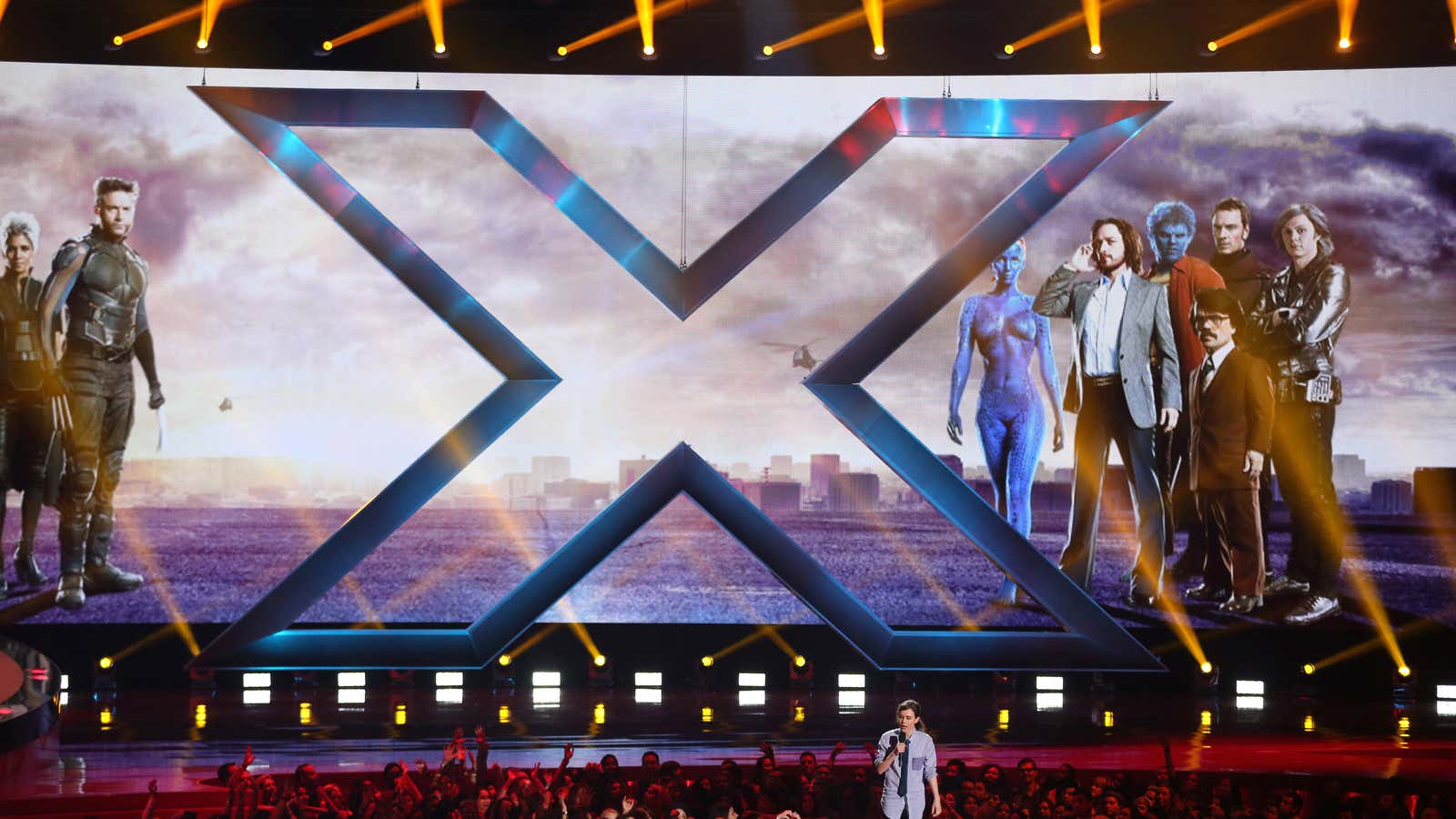The Civil Rights struggle was in full swing when the very first Stan Lee/Jack Kirby X-Men comic was published in 1963. Featuring a community of persecuted mutants, Lee and Kirby had to have been aware of the way their comic would resonate with contemporary black protest. Subsequent readers certainly have been—as the X-Men have grown more popular over the years, the heroic Professor Xavier has often been compared to Martin Luther King. The supervillain Magneto, who advocates for mutant separatism and violence, has been compared to Malcolm X.
So if the X-Men have always been a Civil Rights metaphor, why not make that comparison explicit? That’s the argument of Eli Keel at Salon, anyway, who recently suggested that Marvel’s new Secret Wars series reboot should redesign Magneto as a black character. Magneto’s origin story is that he was a Jewish victim of the Holocaust—which made sense decades back, but would now mean he has to be in his 70s, not very tenable for someone performing active supervillainous feats. The time is right for an update, Keel says: “The best fix for Magneto’s origin problem is to reboot him and Professor X into the heart of the Civil Rights Movement. Have them experience the heartbreak of the historic assassinations as young black men.”
There’s only one problem with that. The X-Men may be a metaphor for segregation. But it’s a really stupid metaphor.
To compare Magneto to Malcolm X is ultimately to say that Malcolm X was a supervillain intent on genocide—which is both insulting and a little racist. Similarly, to say that Professor X is Martin Luther King is to suggest that pacifist resistance to injustice is equivalent to organizing a team of minority vigilantes to hunt down and police other minorities.
Xavier’s original plan in that first X-Men comic was to “build a haven…a school for X-Men! Here we stay, unsuspected by normal humans, as we learn to use our powers for the benefit of mankind to help those who would distrust us if they knew of our existence!” The whole purpose of the X-Men is to hide their difference while secretly helping mainstream society—and that help comes mostly in the form of kicking the tar out of other mutants. Martin Luther King was beaten by cops; he didn’t aspire to be one.
Keel recognizes that the Malcolm/Magneto, Martin/Xavier analogy doesn’t work very well and suggests a variety of fixes. But even if you made all the X-Men black, you’d have problems. The series’ main narrative convention still involves oppressed people forming a vigilante organization to beat up other oppressed people who threaten the status quo. In X-Men: Days of Future Past, for example, the main mission is to save Richard Nixon. There’s no real way to read that as a radical social program for racial change.
In a recent interview, artist and comics creator John Jennings told me, “honestly, I think it’s more important to have black creators working than it is to have black superheroes.” Rather than asking white guys to try to rewrite their characters to be more reflective of black and minority narratives, we should simply create better, original storylines. Imagine, for example, if the mainstream could stop churning out X-movies for half a minute, and instead decided to make a film version of Octavia Butler’s Wild Seed.
Wild Seed is about stigmatized mutants too, but none of the stigmatized mutants decide to form a paramilitary force. Instead, the story focuses on an African woman named Anyanwu, and her nemesis and sometimes friend, Doro. Rather than a confused metaphor about Civil Rights struggles, the novel is a painful exploration of slavery and sexual coercion, focused on a black woman’s power and her fear for her children. Certainly not a feel-good summer superhero bash—but then again, maybe that’s a sign that feel-good fun superhero bashes aren’t necessarily well-equipped to deal intelligently with issues of racial history.
Back in March, Michelle Rodriguez was asked if she wanted to play Green Lantern, and she responded, ” I think it’s so stupid… this whole minorities in Hollywood thing, it’s so stupid. It’s like, stop stealing all the white people’s superheroes. Make up your own.”
Rodriguez took a lot of flak for her comments—which she later clarified—but looking at the X-Men, you have to wonder if she doesn’t have a point. Stan Lee and Jack Kirby created an arguably thoughtless, clumsy, and in many ways ugly parable about stigmatized minorities in America. Yet 50 years later we’re still telling and retelling that same dumb story. Sure, if this was the only narrative available, it would be important to try to have better representation of minority characters and experiences. But couldn’t we, maybe, tell different stories? Because whether Magneto is white, black, or orange with purple stripes, the X-Men series is always going to present the Civil Rights struggle primarily in terms of stigmatized minorities blasting each other with power beams.
